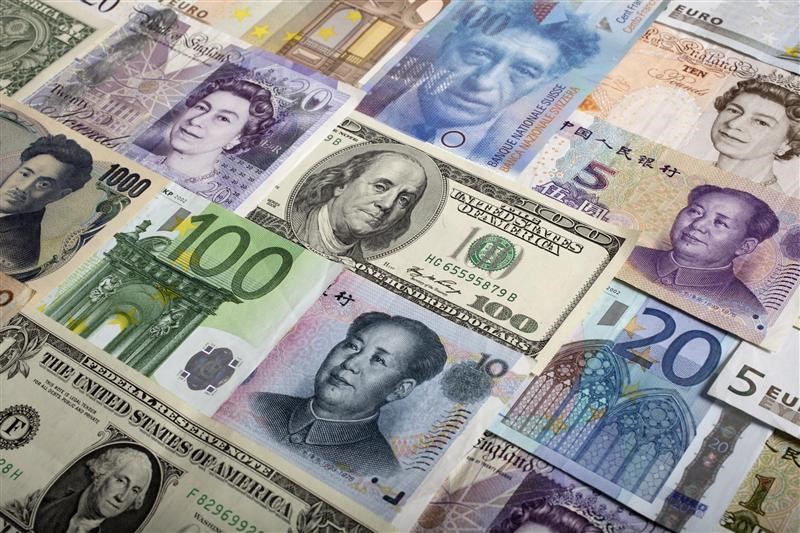* U.S. bond yields elevated even after Fed unveils MMF facility
* Australian bonds soar despite RBA's QE and yield curve control
* BOJ conducts 2 unscheduled bond buying as yields rise (Updates prices, adds comments, background)
By Hideyuki Sano and Swati Pandey
TOKYO/SYDNEY, March 19 (Reuters) - Bond prices gyrated on Thursday with desperate investors dumping government bonds and hoarding cash in markets gripped by pandemic fears that have forced central banks to step up support for debt.
With economies around the world disrupted by widespread travel restrictions and economic activity near a standstill, foreshadowing a deep recession at least on a par with the 2008 global financial crisis, bonds have not been spared.
The recent massive sell-off in equities and currency markets has prompted investors to abandon government bonds, normally considered a safe asset, to make up for losses elsewhere and to stock up on cash, particularly dollars.
"Everybody is hoarding dollars, much like people are stocking up toilet rolls around the world now," said Masayuki Murata, general manager of balanced portfolio investment at Sumitomo Life Insurance in Tokyo.
"You never know whether you really need that many toilet rolls. Some people may have piles of them. But they won't let them go now... The routs are driven not so much by heavy selling as lack of bidders."
Brokerages, with their trading books damaged, are restricting trading. As orders in markets have fallen to a trickle, market fluctuations have widened to unprecedented levels for many traders.
The Australian 10-year bond yield jumped more than 50 basis points to 1.647% AU10YT=RR , reaching its highest level since last May, even after the Reserve Bank of Australia cut interest rates for a second time this month and launched quantitative easing in an emergency move. is not much trading happening. There are not a lot of transactions, not a lot of deals and market makers are pricing very, very defensively. In some cases, market makers are pricing only by offers," said Su-Lin Ong, managing director at RBC Capital Markets in Sydney.
"It's quite a dislocated market. We are one of the market makers. The reason we are pricing defensively is because you don't want to be caught with a lot of inventory on the book."
Even in U.S. bond market, the most liquid in the world, trading has become highly erratic.
The yield on 10-year U.S. Treasuries US10YT=RR jumped more than 0.25 percentage point -- the size of a typical central bank rate change -- in each of the last two sessions.
The yield last stood at 1.256%, almost 1 percentage point above its record low of 0.318% touched just last week, despite the U.S. Federal Reserve's one percentage point rate cut on Sunday.
"I think it all stems from just a shortage of U.S. dollars, USD cash. And balance sheets are being strained as well. I think the reason that we've seen the sort of stress in the bond market is because there's not a lot of liquidity out there and there's not a lot of cash to make markets," said Gunter Seeger, senior vice president of fixed income at New York-based asset manager PineBridge Investments.
The market hardly budged after the U.S. Fed rolled out yet another emergency credit program, announcing it would make loans to banks that offer as collateral assets purchased from money market mutual funds (MMFs). move is aimed to prevent MMFs from selling long bonds when they face cash withdrawal from investors. The measure should reduce pressure on the market," said Izuru Kato, chief economist at Totan Research.
"But it only eases the damage. Unless panic over the virus subsides, markets will remain unstable."
European bond yields have soared in the past week, including German Bunds, which are usually considered as safe haven assets at times of economic stress because of Germany's sound fiscal conditions. European Central Bank late on Wednesday launched new bond purchases worth 750 billion euros at an emergency meeting to mitigate the impact of the market rout on the euro zone's economy. Bank of Japan conducted two unscheduled JGB purchases totalling 1.3 trillion yen ($11.95 billion) to help quell the market.
Still, that did not stop the market's slide. Benchmark JGB futures 2JGBv1 fell 1.02 point in their second biggest fall in four years only after last Friday's 1.07 point decline.
The 10-year JGB yield JP10YTN=JBTC climbed 4 basis points to 0.090%, a high last since in late 2018 while the five-year yield gained 2.5 basis points to minus 0.050% JP5YTN=JBTC .
"Given recent volatilities, most traders have to limit their trading so they can manage market risks with more caution. In addition, many people are now working remotely, away from their usual desk, so they can't trade as speedily as they usually do," said Keiko Onogi, senior strategist at Daiwa Securities.
The BOJ's buying followed a decision at its policy meeting this week to buy JGBs aggressively if needed.
($1 = 108.82 yen)
